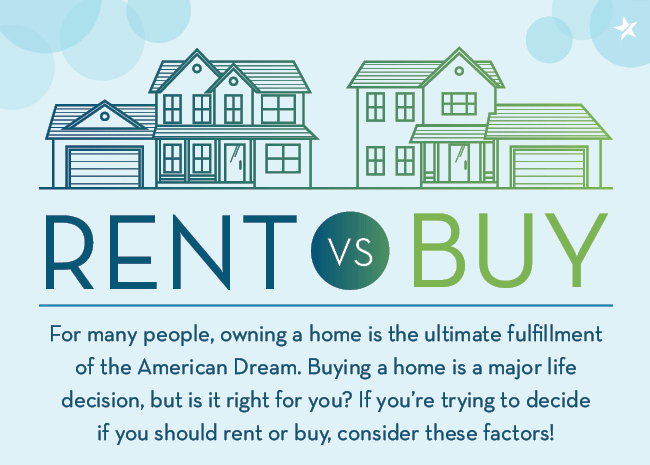The Marquee Loop: Renting vs. Buying: Navigating the Crossroads in the Mortgage Industry
The decision to rent or buy a home is one of the most significant financial choices individuals face. As someone in the mortgage industry, you understand the nuances that go into this decision-making process. In this blog, we’ll explore the advantages and considerations of both renting and buying, helping prospective homeowners make informed choices that align with their financial goals.
The Benefits of Renting
- Flexibility: Renting offers flexibility that buying can’t match. Tenants can easily relocate at the end of their lease, making it an ideal option for those who anticipate changes in their job, family, or lifestyle.
- Lower Upfront Costs: Renting usually requires a security deposit and sometimes the first and last month’s rent. This is significantly lower than the down payment and closing costs associated with buying a home.
- Reduced Responsibility: Maintenance and repairs are typically the landlord’s responsibility, freeing renters from the financial burden and time commitment of home upkeep.
- No Market Risk: Renters are not exposed to fluctuations in the housing market. They are not tied to the property’s value, which can be advantageous during economic downturns.
The Advantages of Buying
- Equity Building: Homeownership allows you to build equity over time. As you make mortgage payments, you’re gradually building ownership in the property, which can be a valuable asset in the long run.
- Stability: Buying a home offers a sense of stability and permanence. You have control over your living space, and you’re not subject to the uncertainties of rental agreements or landlord decisions.
- Tax Benefits: Homeowners can often deduct mortgage interest and property taxes from their income taxes, which can lead to significant savings. This can make the cost of owning more comparable to renting in some cases.
- Investment Potential: Real estate can appreciate over time, potentially leading to a return on investment when you decide to sell. This can be a valuable source of wealth accumulation.
Factors to Consider
- Financial Readiness: Determine your financial readiness for homeownership. Consider your credit score, debt-to-income ratio, and ability to make a down payment.
- Long-Term Plans: Assess your long-term plans. If you envision staying in the same area for several years, buying might make more sense. If your plans are more fluid, renting could be preferable.
- Monthly Costs: Compare the monthly costs of renting and owning. Remember that while renting might have lower upfront costs, homeownership involves property taxes, insurance, maintenance, and potentially higher utility bills.
- Market Conditions: Analyze the local housing market. If property values are rapidly increasing, buying might offer strong investment potential. In a volatile market, renting could provide stability.
In conclusion, renting and buying each have their merits, and the decision depends on individual circumstances and financial objectives. As a professional in the mortgage industry, you can guide clients through this decision-making process by helping them assess their financial health, long-term plans, and local housing market conditions. By providing expert advice and tailored solutions, you play a pivotal role in helping individuals and families achieve their housing goals while making wise financial choices.


